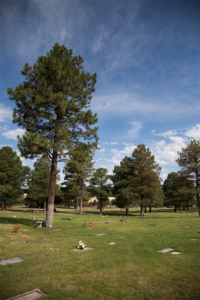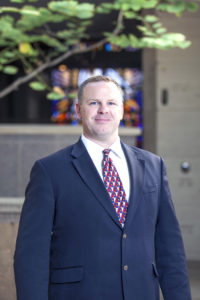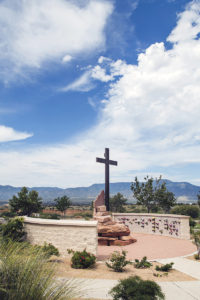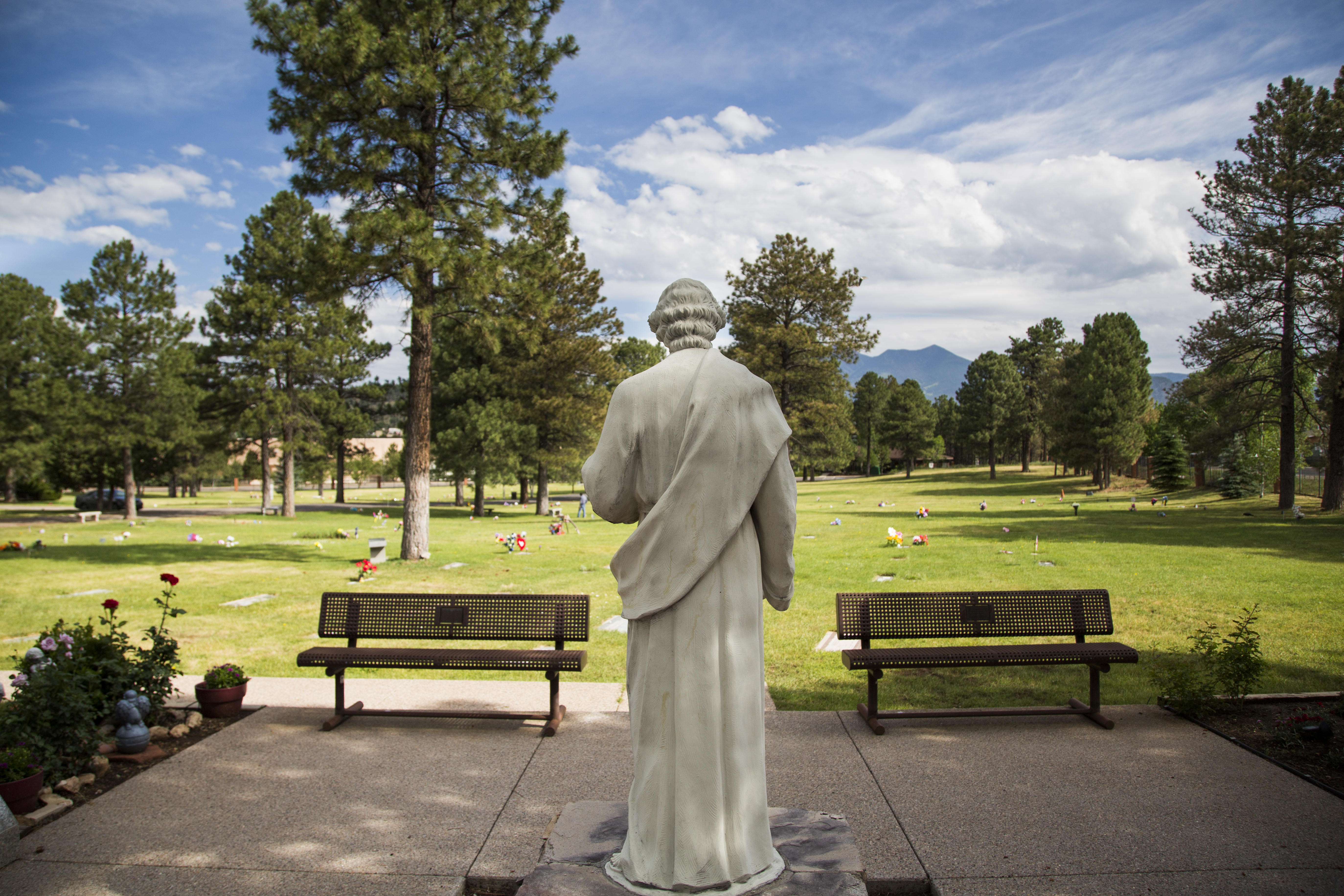
His business card calls him a manager, but he largely manages himself.
Patrick Stoffel is essentially the only regular face visitors see when they come to Calvary Catholic Cemetery in Flagstaff and All Souls Catholic Cemetery in Cottonwood. He helps individuals pre-plan their funeral and burial or cremation needs, journeys with those making arrangements last minute, sets up for burials and places headstones.
He would dig the graves too, but leaves that to the experts via a contract with the city. There’s a seasonal mower. All other matters for managing the oldest and newest cemetery serving the Diocese of Phoenix falls to Stoffel.
He is OK with that.
“Even before I could identify it as being a corporal work of mercy, I just felt it was important,” Stoffel said.
He credits his upbringing for that. Stoffel often spent time at the gravesite or mausoleum marker where relatives had their final resting place.

“Friend or family, when someone passes on, you need to be there and be part of that tradition,” Stoffel said. He said the importance of memorializing, interring or other forms of sacred disposition often gets overlooked today.
Church tradition, especially throughout the month of November, is different. Catholics routinely pray for the dead with every recitation of the Rosary and the Fatima prayer. Beginning with All Saints Day Nov. 1 and All Souls Day Nov. 2 and continuing all month, they especially pray for the souls in Purgatory.
Cemeteries are holy grounds for worship and prayer. They witness to a shared faith in the Resurrection and “hold the relics of those who are experiencing the joy of eternal life among the Communion of Saints. They are a link to our Lord in Heaven,” a pamphlet for each Catholic cemetery in the diocese states.
Visit a Catholic Cemetery
Info: Dopccfh.org
- Pray for the dead any time on your own
- Nov. 23 Unclaimed Dead Memorial Service with André House at White Tanks Cemetery in Litchfield Park
All six of them will hold a Mass on All Souls Day. Stoffel has seen at least 50 people show up each year since his arrival in 2010. He even recalled students from Northern Arizona University holding a candle-lit Eucharistic procession around campus after their own evening Mass Nov. 1. Calvary Cemetery neighbors the college campus.
On Nov. 2, students process from the Newman Center to the cemetery. It’s primarily Latino students who attend and sing songs along the way and then stay for Mass at the cemetery.
Processions following funeral Masses have become more common since All Souls Cemetery opened in 2004. The two-acre cemetery with another 16 acres of growing space sits across the parking lot from Immaculate Conception Parish.

“It’s really a special place, especially for the procession to come directly after the Mass and to go to the cemetery,” Stoffel said.
He sees cemetery work as an extension of a local church’s efforts to take care of parishioners. It’s a place to respectfully preserve the body or cremains until the end of time when the body is resurrected and Judgment Day commences.
“From the beginning the Church has honored the memory of the dead and offered prayers in suffrage for them, above all the Eucharistic sacrifice, so that, thus purified, they may attain the beatific vision of God,” the Catechism of the Catholic Church states (1032).
Two cemetery grounds in the diocese, Queen of Heaven in Mesa and Holy Cross in Avondale, also have mortuaries on site.
Stoffel, who has a background in forestry, fell into cemetery work in 2000. The public works department he served in back in the Midwest was too big for his comfort. A position opened up in a smaller division that included cemeteries, buildings
and grounds. Now, he can’t imagine doing anything else.
Related
“Sharing my faith” — How a Protestant from Iowa ended up finding love in both his bride and his secular vocation
“I feel blessed to be able to do what I do, to help families through hard times,” Stoffel said.
He draws upon his grief training to help them get through even the most practical of steps that go beyond funeral planning. Stoffel tells families that it’s common for the bereaved to forget to eat and drink in the days and weeks surrounding death of a loved one. He reminds them of their importance and to rest as much as possible, too.
Another part of his job involves listening. Stoffel sees himself as the beginning of the support network a grieving family can rely upon.
“I just let people talk and express themselves. I don’t try to tell them anything in particular,” he said. With little staff around and acres of well-manicured grounds around him, listening comes easily.







